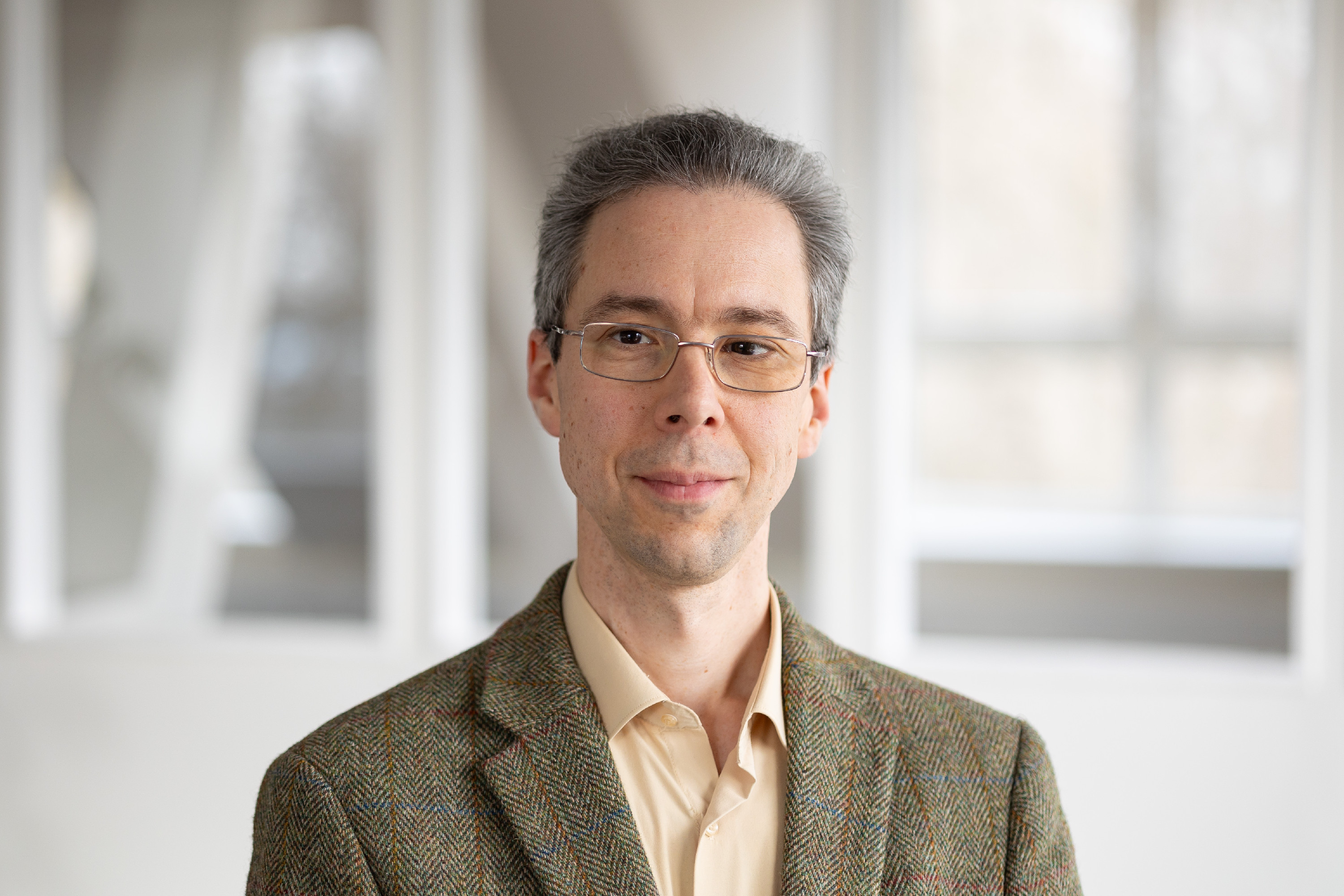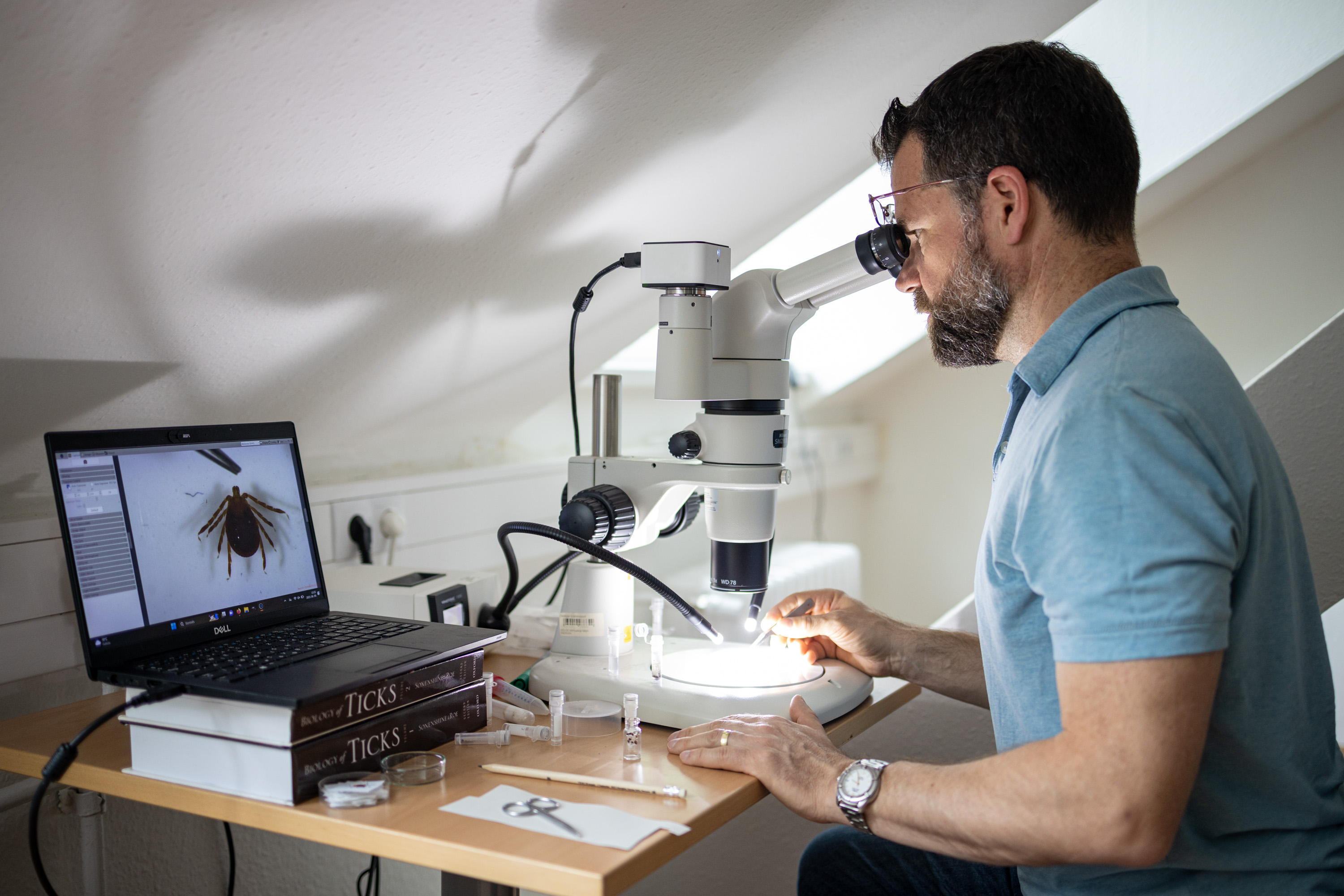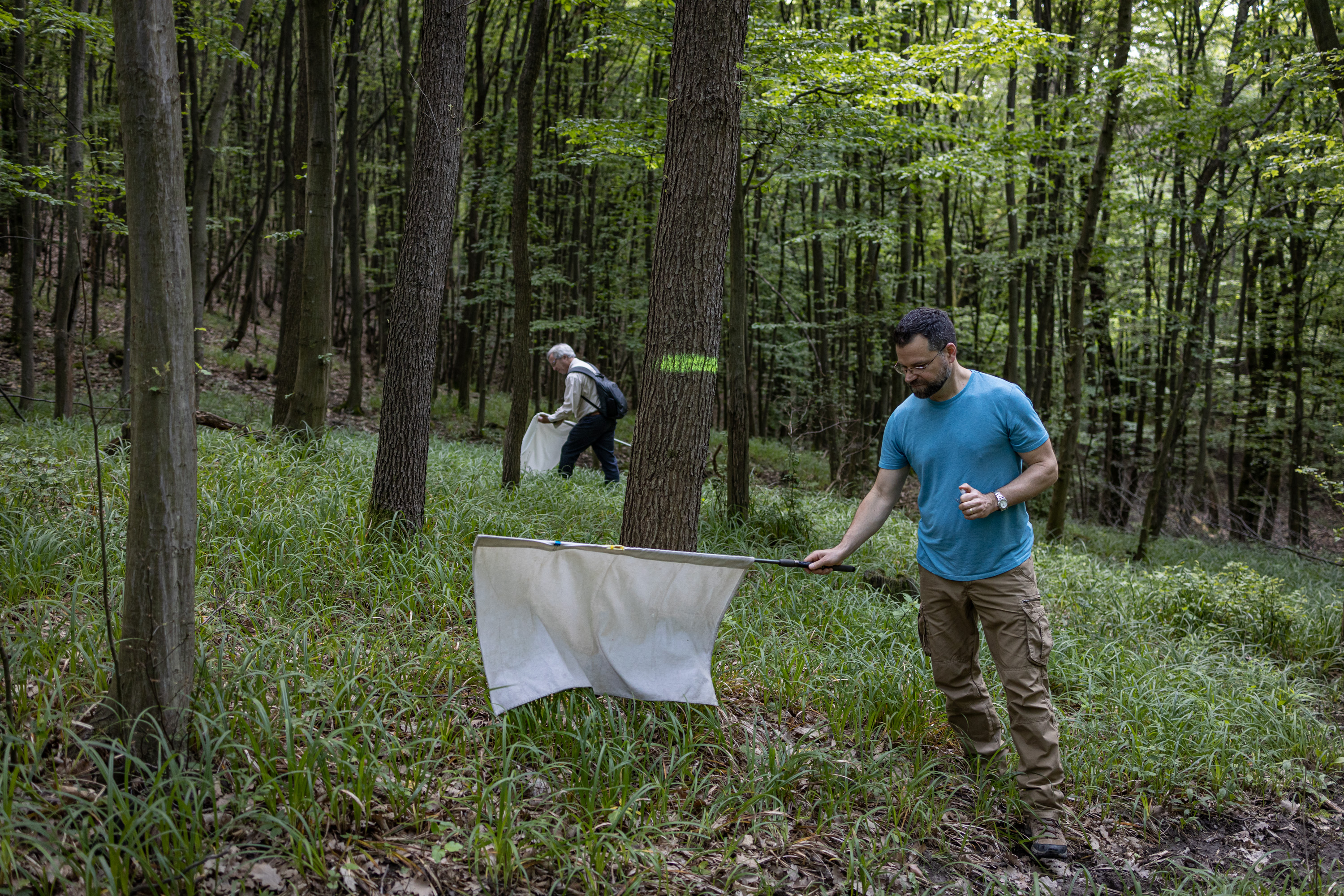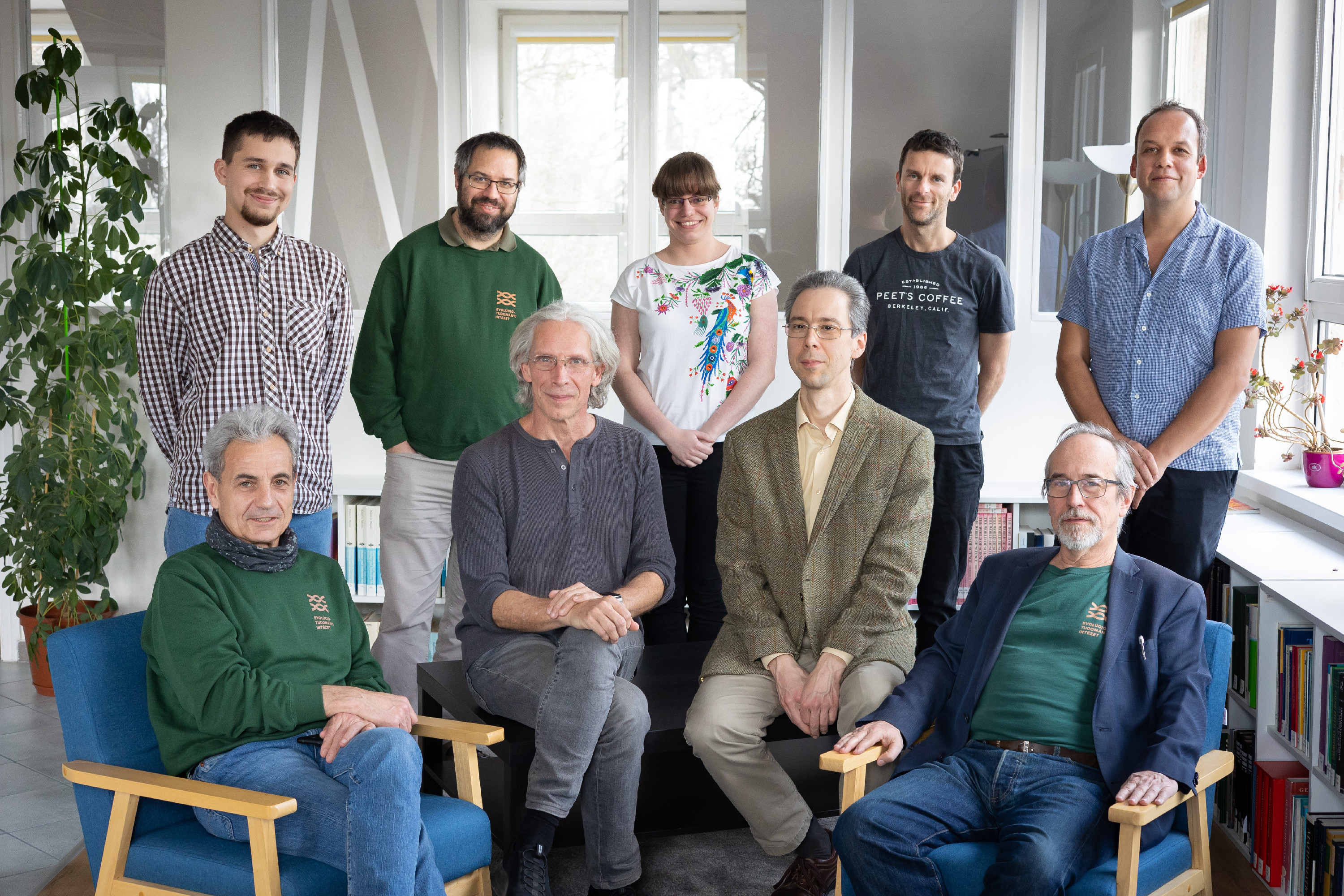Quest for the Origin of Life: Fifth Anniversary of HUN-REN CER’s Institute of Evolution
They explore the origins of life, raise awareness about the impacts of the climate crisis and the responses required, and actively seek to involve the public in their research. This year marks the fifth anniversary of the Institute of Evolution within the HUN-REN Centre for Ecological Research. To mark this milestone, we spoke with Eörs Szathmáry, the founder of the Institute, and András Szilágyi, its Director.
The roots of theoretical evolutionary biology research in Hungary extend well before the establishment of the Institute of Evolution. In fact, a research group led by Eörs Szathmáry had been active in this field since the 1990s. “Officially, we were established in August 2019, but for a time, the new Institute was somewhat ‘in limbo,’ partly due to the turbulence of the transition between the Hungarian Academy of Sciences (HAS) and the Eötvös Loránd Research Network (ELKH), and then because of the Covid pandemic in the spring of 2020. As a result, the intensive work, whose main directions and research topics we had previously defined, could only begin more than a year later at our new location,” recalls András Szilágyi, Director of the Institute of Evolution, reflecting on the early days.

András Szilágyi
Photographer: Kállai Márton
A key focus of their theoretical investigations is the study of major evolutionary transitions—a field that has been central to the 'Budapest School' of theoretical evolutionary biology, associated with Eörs Szathmáry, since the 1990s. The very first of these transitions is the origin of life: it can be described as the transition from chemistry to biology, from the inanimate to the living. They investigate where and how chemical complexity reaches the level at which a complex chemical system can be considered a biological system that meets the criteria for life. Their research also explores other major evolutionary transitions, such as the emergence of multicellularity, the development of the immune and nervous systems, and, ultimately, the most recent and closest transition to us: the evolution of language with a biological function, i.e., high-level human communication. To investigate possible scenarios for this process, they employ a population of 26 autonomous robots. Through this evolutionary robotics model experiment, they demonstrate that communication and cooperation have evolved hand in hand throughout human history.

Photographer: Kállai Márton
This is just one of the core areas of the Institute's work. The other two are more practical: they study the biology of pathogens emerging due to climate change, the biology of human and animal parasites, and host-pathogen interactions. They also investigate the processes underlying the evolution of cooperation at all levels of biological organisation, from bacteria to humans. "We pay particular attention to the ecology and epidemiology of new pathogens that emerge in specific areas as a result of climate change and human-induced environmental degradation, as well as to how we can better prepare for the emergence of new diseases," adds the Institute Director.

Photographer: Kállai Márton
Working closely with international colleagues, they have adapted the DAMA (Document, Assess, Monitor, Act) protocol for national use. This proactive epidemic prevention framework is based on the simple principle that prevention is always cheaper and more effective than damage control. Although policymakers and legislators have yet to respond to this project, the evolutionary ecology of an infectious disease caused by a tick species newly emerging in Hungary is being studied as a model project in this spirit. "Aligned with this, we run a citizen science programme in which the public assists by collecting samples and making observations, helping our researchers gain a comprehensive understanding of the dynamics of these processes," explains András Szilágyi.
The website of their citizen science programme, kullancsfigyelo.hu, is highly popular, with many volunteers contributing to their work. "It’s rewarding to bring science closer to people. It helps them better understand what we do, and in our experience, they are eager to assist. They feel—and rightly so—that by participating, they are actively involved in our research and contributing to the generation of new findings," says the Director of the Institute of Evolution at HUN-REN CER.
"At the same time, we consider the dissemination of scientific knowledge to be extremely important. We believe that we can communicate our scientific results and their potential societal impact to the public, even in abstract, theoretical areas. We also strive to raise awareness of the ecological crisis—emphasising that the situation is critical and that significant societal cooperation is needed to prevent this crisis from worsening or to slow its progression. In this effort, we collaborate with the other two ecology-focused institutes within our Centre: the Institute of Ecology and Botany and the Institute of Aquatic Ecology. Although it is not strictly our task, we place great emphasis on our involvement in higher education and, to some extent, public education. We teach numerous courses at several universities and, together with some of my colleagues, are involved in mentoring talented secondary school students. We aim to show young people how fascinating our field is. Attracting outstanding university students is challenging because, unfortunately, many see little potential in pursuing a PhD in Hungary. We hope that a more forward-looking scholarship and salary policy will strengthen our ability to attract and retain talent," adds András Szilágyi.
"There are several things I could mention that we are most proud of, but perhaps one of the most important is our funding. We have been highly successful in securing grants, both nationally and internationally. Nearly two-thirds of our wage bill is covered by grant funding—an impressive achievement, but one that also creates a precarious situation for a small institute like ours. The loss or non-renewal of any grant could put us in a difficult financial position. Introducing a more performance-based funding system by our maintainer could help address this issue," emphasises the Institute Director.

Photographer: Kállai Márton
The Director of the Institute of Evolution at HUN-REN CER also highlighted their publication activities, as their articles regularly appear in top-tier journals, including Nature and Science. "The majority of our researchers publish almost exclusively in D1 journals, which represent the top 10 percent of scientific periodicals, and the number of publications per researcher is also impressive," the Director summarises. "It is also gratifying that, despite our relatively short history, we have developed a very positive, cohesive, and cooperative team, and that we have managed to establish experimental fields that are either new or underrepresented in Hungary," explains András Szilágyi. He also praised the HUN-REN Welcome Home Programme, which enabled them to bring back a young Hungarian researcher from Stanford University. Gábor Boross is setting up an evolutionary cancer research laboratory at the Institute, where he aims to gain a better understanding of the development, progression, and therapeutic possibilities of cancer through the lens of evolutionary biology, applying Darwinian logic.


